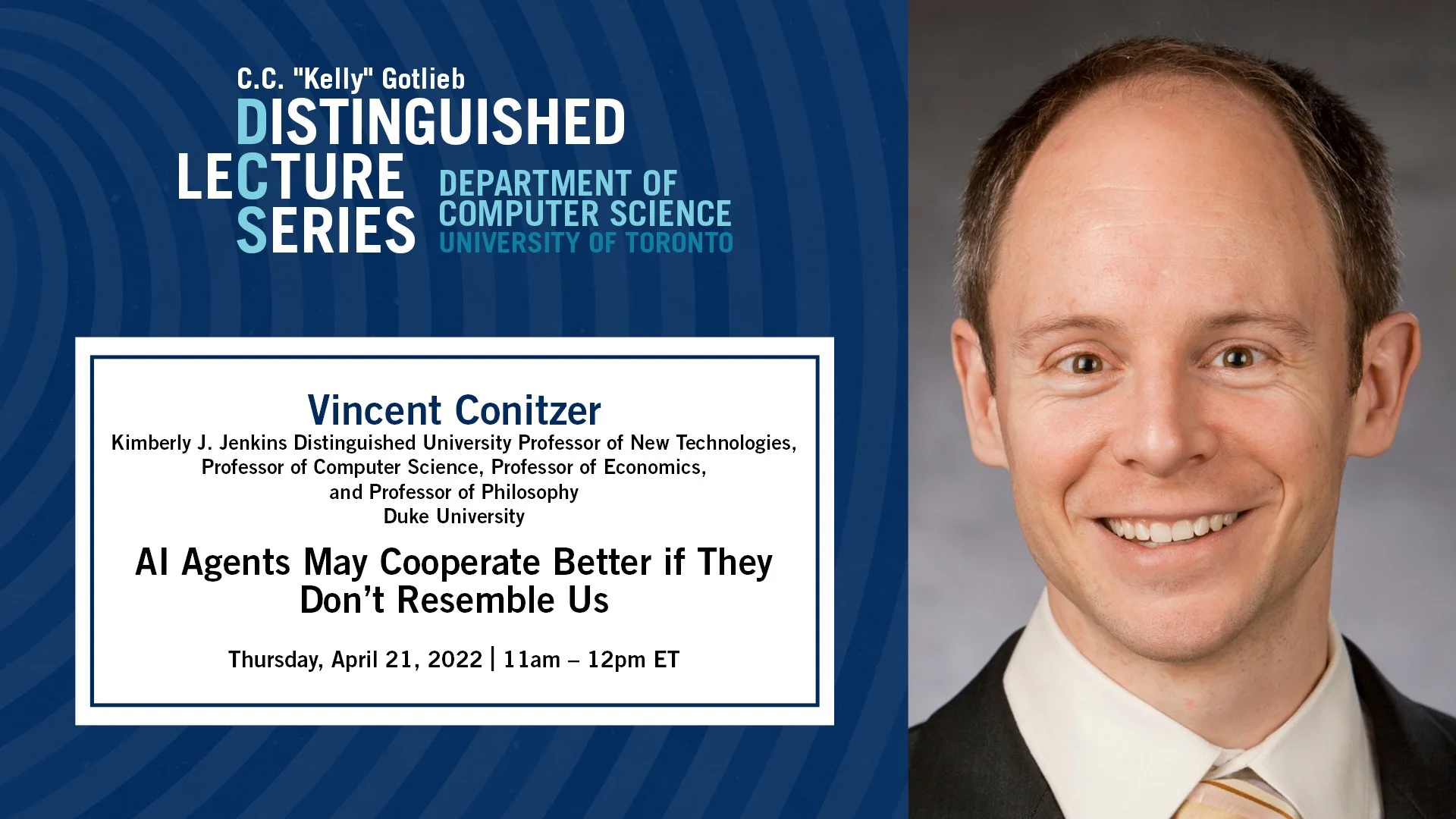AI Agents May Cooperate Better if They Don't Resemble Us
Vincent Conitzer
Kimberly J. Jenkins Distinguished University Professor of New Technologies
Professor of Computer Science, Professor of Economics, and Professor of Philosophy
Duke University
Thursday, April 21, 2022 | 11AM – 12PM ET
Abstract:
AI systems control an ever growing part of our world. As a result, they will increasingly interact with each other directly, with little or no potential for human mediation. If each system stubbornly pursues its own objectives, this runs the risk of familiar game-theoretic tragedies – along the lines of the Tragedy of the Commons, the Prisoner’s Dilemma, or even the Traveler’s Dilemma – in which outcomes are reached that are far worse for every party than what could have been achieved cooperatively.
However, AI agents can be designed in ways that make them fundamentally unlike strategic human agents. This approach is often overlooked, as we are usually inspired by our own human condition in the design of AI agents. But I will argue that this approach has the potential to avoid the above tragedies in new ways. The price to pay for this, for us as researchers, is that many of our intuitions about game and decision theory, and even belief formation, start to fall short. I will discuss how foundational research from the philosophy and game theory literatures provides a good starting point for pursuing this approach.
This talk covers joint work with Caspar Oesterheld, Scott Emmons, Andrew Critch, Stuart Russell, Abram Demski, Yuan Deng, and Catherine Moon.
Bio:
Vincent Conitzer is the Kimberly J. Jenkins Distinguished University Professor of New Technologies and Professor of Computer Science, Professor of Economics, and Professor of Philosophy at Duke University. He is about to move to Carnegie Mellon University. He is also Head of Technical AI Engagement at the Institute for Ethics in AI, and Professor of Computer Science and Philosophy, at the University of Oxford. He received Ph.D. (2006) and M.S. (2003) degrees in Computer Science from Carnegie Mellon University, and an A.B. (2001) degree in Applied Mathematics from Harvard University. Conitzer works on artificial intelligence (AI). Much of his work has focused on AI and game theory, for example designing algorithms for the optimal strategic placement of defensive resources. More recently, he has started to work on AI and ethics: how should we determine the objectives that AI systems pursue, when these objectives have complex effects on various stakeholders?
Conitzer has received the 2021 ACM/SIGAI Autonomous Agents Research Award, the Social Choice and Welfare Prize, a Presidential Early Career Award for Scientists and Engineers (PECASE), the IJCAI Computers and Thought Award, an NSF CAREER award, the inaugural Victor Lesser dissertation award, an honorable mention for the ACM dissertation award, and several awards for papers and service at the AAAI and AAMAS conferences. He has also been named a Guggenheim Fellow, a Sloan Fellow, a Kavli Fellow, a Bass Fellow, an ACM Fellow, a AAAI Fellow, and one of AI's Ten to Watch. He has served as program and/or general chair of the AAAI, AAMAS, AIES, COMSOC, and EC conferences. Conitzer and Preston McAfee were the founding Editors-in-Chief of the ACM Transactions on Economics and Computation (TEAC).

